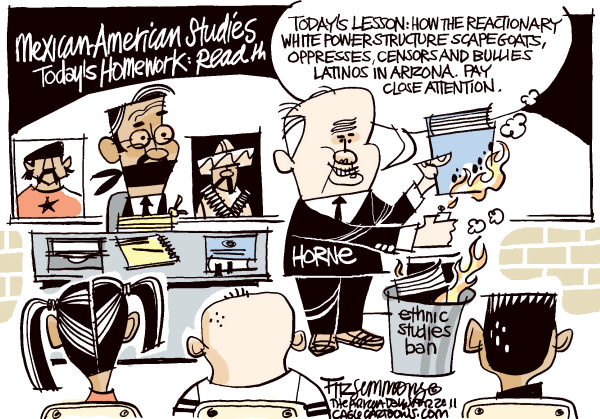Banned Mexican American Studies in Arizona
Unfortunately, the benefits of courses that implement culturally relevant curriculum, such as Ethnic Studies or Mexican American studies, are not recognized by all education stakeholders and are perceived by some as a “threat” to democracy. In 2010, Arizona passed a law stating that  the government could pull 10% of school district funding if any school in the district had classes that2:
the government could pull 10% of school district funding if any school in the district had classes that2:
- Advocate ethnic solidarity rather than treating pupils as individuals,
- Promote resentment toward a race or class of people,
- Are designed primarily for pupils of a particular ethnic group, or
- Promote the overthrow of the U.S. government.
This led several districts, such as the Tucson Unified School District (TUSD), to remove their Mexican American Studies (MAS) courses from schools because keeping the programs would have cost schools approximately $15 million.7 Students, staff, and parents of students in the TUSD protested and fought against the legislation and removal of MAS. In July 2013, their case was heard by a federal judge who ordered TUSD to reinstate MAS as well as African-American studies, calling them, “culturally relevant curriculum.”8
Precious Knowledge 5
Precious Knowledge is a film that documents how Curtis Acosta, a teacher at TUSD, and his students fought the MAS ban in Arizona. This powerful film speaks to the importance that culturally relevant curriculum has for students, as well as the possibilities that lie within student activism.